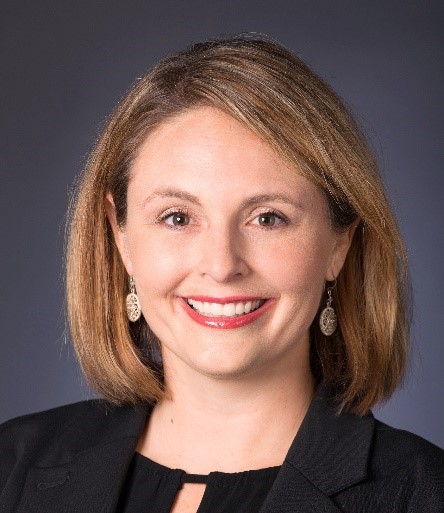Know Your Legal Rights is a bi-monthly column distributed by the State Bar of Wisconsin. It is sponsored by the State Bar of Wisconsin’s Lawyer Referral Service (LRS), which connects Wisconsin residents with lawyers throughout the state. To find an attorney in your area, visit wislaw.org.

By Attorney Megan A. Phillips of Richter & Phillips, LLP
As the holiday season approaches, family lawyers often see a spike in child-related disputes. This is sometimes due to heightened emotions about children missing important holiday family events. Arguments also occur as former partners plan the holidays around the transfer of children between two households.
Court-ordered holiday schedules usually include children spending time with both parents, often with days like Thanksgiving, Christmas Eve and Christmas rotating between parents each year. Parents also sometimes divide a holiday in half. For instance, Christmas Day may be divided between both parents. The necessity of interaction with a former partner on special holidays is also sometimes upsetting.
Common Holiday Issues
Holidays are challenging for many people without divided families, but adding this extra layer can elicit dark emotions. This is especially true for the first year or two following a divorce or separation. Many people deal with a hostile co-parent’s demands about the logistics of a court-ordered holiday schedule. This can make previously cherished times of year feel like an escalation of conflict rather than a time of togetherness.
Divorced and separated parents also can struggle to make a new plan with different traditions for celebrating the holidays. Post separation, many previous family customs must change or become much more flexible. In the midst of this whirlwind, parents and children alike can become distressed and act out.
Incidents relating to drug and alcohol dependency can also increase during the months of November and December, likely due to holiday stress.
Plan Ahead
Few things can intensify existing holiday stressors more than avoidance and procrastination. Many family lawyers receive a flurry of calls the weeks before Christmas, for example, about last-minute planning that remains unsettled. Parents then become desperate to iron out the wrinkles as the clock drains. With little time to resolve any disagreement, lawyers are often more aggressive than otherwise would be the case. Disputes that would otherwise get resolved can end up before a judge for a last-minute hearing before winter break begins.
Another element of planning is identifying which holidays matter most to your family, and making sure those are addressed clearly in the divorce or separation paperwork. Before your paperwork is finalized, have a trusted friend or family member read through the holiday language. Is it clear? Are there any loopholes or unclear sections that could cause an argument? Spotting these ahead of time can save years of stress and lots of legal fees down the road.
Tools to Help
After a divorce or separation, it is helpful to reconsider existing holiday traditions in light of the new court order. This is often an opportunity for creativity brainstorming a mix of new and old traditions for the family.
It is challenging to set boundaries with a difficult co-parent while also remaining open to making agreements, which is almost always preferable to going to court. Remember that being accommodating to the other parent often triggers the reciprocity norm, encouraging them to be more flexible later. Even so, if there is evidence that children are ever at risk with a parent, always consult an attorney for advice and even consider contacting police depending on the risk level.
As years go by following the separation into two households, each holiday tends to gets easier. Sometimes this is simply because the coping mechanisms are more developed each time, and more reasonable expectations are set by both parents. It is common that divorced or separated parents struggle initially, but get along much better after that.
For those navigating these murky waters, self-care during the holidays is essential. Enjoying time with close friends or family, tending to health (physical and mental), and spending quality time with children can make an enormous difference. It is often not about the quantity of time a child spends with a parent that matters, it is the quality of that time. Sometimes, parents are initially heartbroken to learn that they will only have Christmas with their child every other year. Many soon learn to adapt, though, and soon Christmas Eve becomes an equally exciting day to celebrate.
Remember the Big Picture
Perhaps most importantly, make the best of holiday time with children, even if it is not in the ideal wrappings. Many parents look back on the years when children were small and regret arguing over what time a child went from one house to the other, rather than savoring the moments they had. Children are far more perceptive than most adults realize. If a parent is anxious, angry or hostile, it is often impossible to hide that from children or avoid those emotions from stressing children. Avoid feeling provoked or intimidated if there are bumps in the road, trying to realize that children suffer the most when parents are unable to cooperate.
Know Your Legal Rights is a bi-monthly column distributed by the State Bar of Wisconsin. It is written by members of theState Bar of Wisconsin’s Lawyer Referral and Information Service (LRIS), which connects Wisconsin residents with lawyers throughout the state. Learn more at LRIS.org
Megan A. Phillips founded the Madison-based law firm Richter & Phillips LLP in 2015. She focuses on litigation and family law. She also teaches negotiations and mediation at the University of Wisconsin-Madison law school


